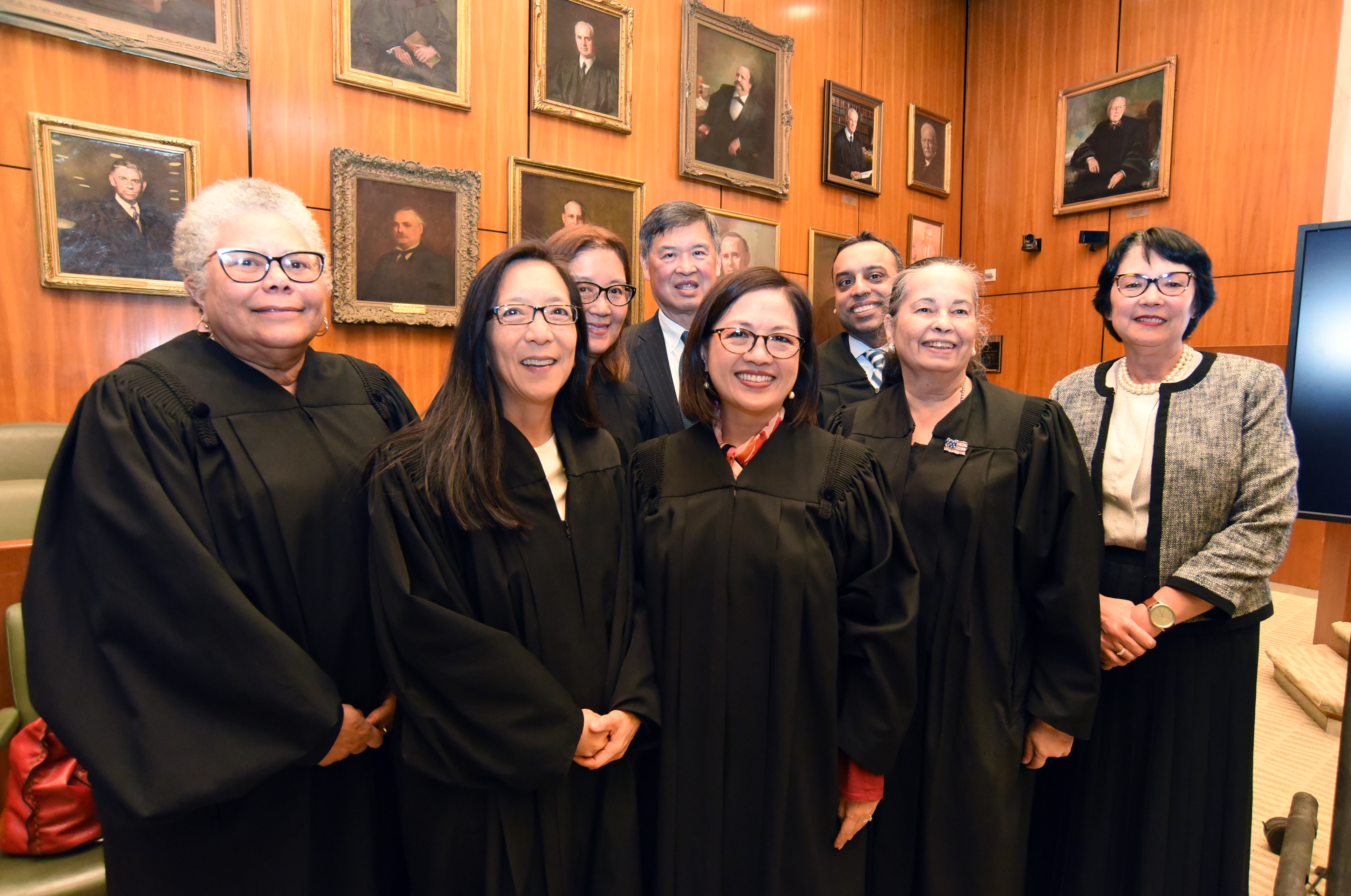EDNY hosts Supreme Court reenactments for Asian Pacific Heritage Month
Cases highlight history of exclusionary immigration policies in the U.S.

Judges and members of the Asian American Bar Association of New York and the South Asian Bar Association of New York teamed up for Asian Pacific Heritage Month on Thursday to present a reenactment of two Supreme Court cases addressing historically discriminatory immigration policies for Asian immigrants.
“The narratives, like the underlying cases, are powerful,” said Ryan Budhu, president of SABANY, during the program’s introduction inside the Ceremonial Courtroom of the U.S. District Court for the Eastern District of New York. “What both cases demonstrate is that Asian-Americans have made their impact on American history, and in turn, the laws of this country have made an impact on the Asian-American narrative.”
The two cases, Ozawa v. United States and United States v. Bhagat Singh Thind, took place in the early 1920s, and the results were similar with Ozawa and Thind each being found ineligible for citizenship based solely on their race.

Brooklyn Boro
View MoreNew York City’s most populous borough, Brooklyn, is home to nearly 2.6 million residents. If Brooklyn were an independent city it would be the fourth largest city in the United States. While Brooklyn has become the epitome of ‘cool and hip’ in recent years, for those that were born here, raised families here and improved communities over the years, Brooklyn has never been ‘uncool’.